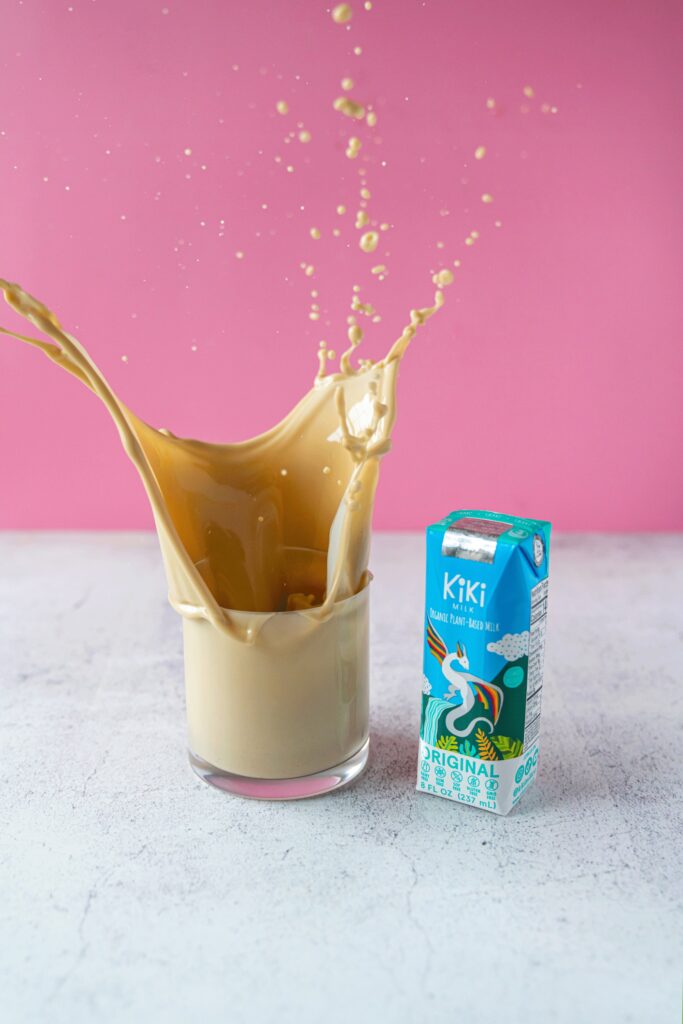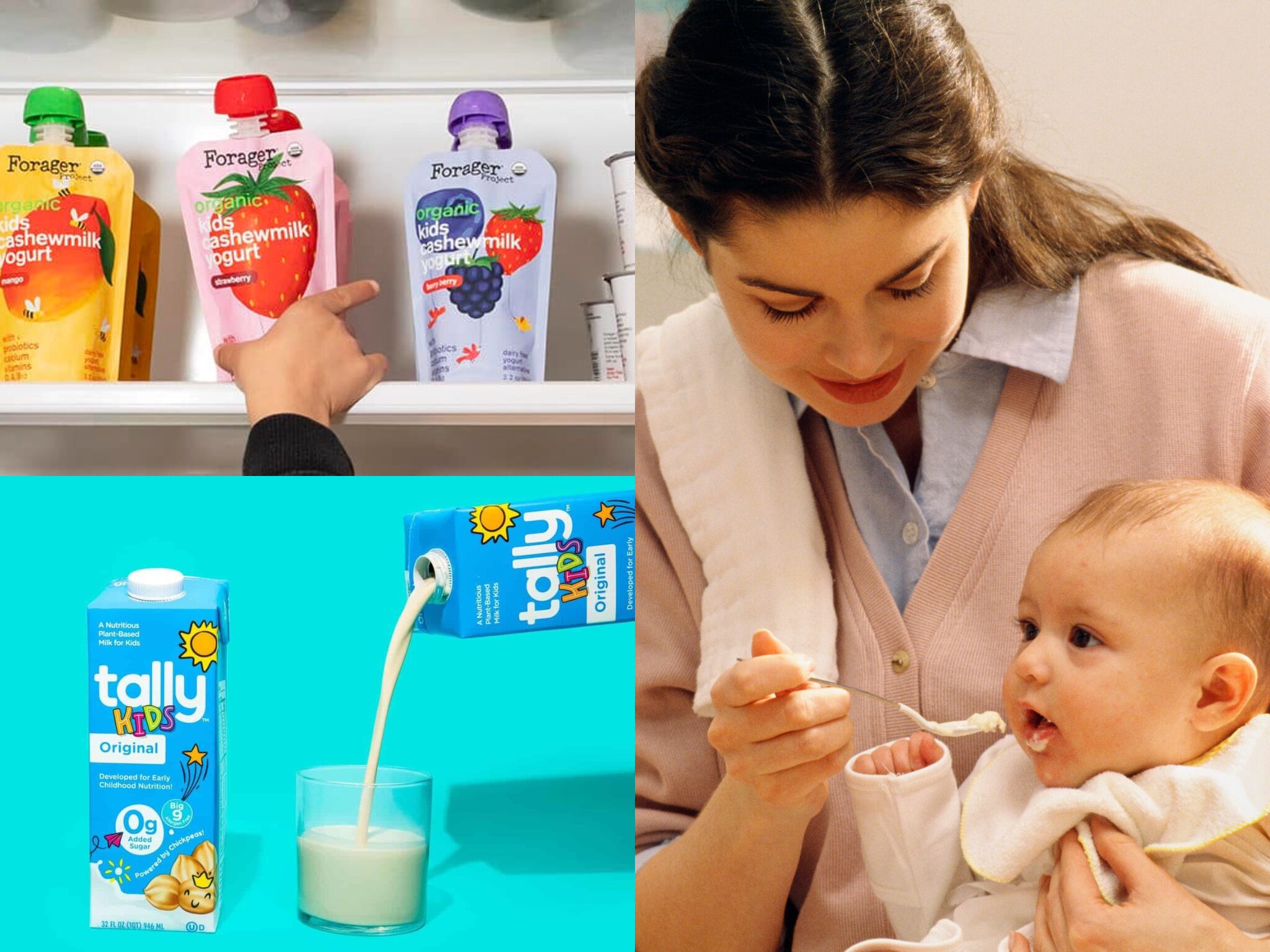Plant-Based Dairy Just Became More Accessible for 7 Million American Women and Children
5 Mins Read
The US Department of Agriculture has just updated its supplemental food as medicine programme for women and children, providing access to more produce and plant-based dairy products to nearly seven million low-income Americans.
The US government has updated its food provision programme for women and children for the first time in 10 years, which increases access to fruits and vegetables, while cutting allowances for dairy and cheese. However, the new guidelines have been expanded to plant-based milk, yoghurt and cheese, which now meet the food as medicine initiative’s nutrient specifications.
The USDA’s Special Supplemental Nutrition Program for Women, Infants, and Children – more commonly known as WIC – provides federal grants to state governments for supplemental foods, healthcare referrals, and nutrition education for low-income pregnant women, new mothers, infants and children up to the age of five, who are found to be at nutritional risk.
First proposed in November 2022, the USDA received over 17,000 comments about the changes, which will affect the 6.6 million people – equivalent to 53% of all babies born in the US – reliant on the WIC program to meet their daily caloric intake. The final updates increase the allowances for whole foods like produce and grains, as well as non-dairy products like yoghurts, cheese and milk.
The changes follow the White House’s efforts to fully fund WIC for 2024, with an extra $1B for the supplemental nutrition programme bringing the total allocated amount to $7B. “WIC has a half-century track record of caring for young families. USDA and the Biden-Harris Administration are committed to ensuring that moms, babies and young children continue to thrive through WIC,” said agriculture secretary Tom Vilsack.
What the new WIC provisions mean for plant-based food

The WIC food packages are food and beverage prescriptions designed to supplement the products Americans already consume, and fill in essential nutritional gaps to support healthy growth and development.
The USDA’s Food and Nutrition Service has now made permanent a “significant boost” to fruit and vegetable provision by upping the amount and varieties available for purchase. This means participants can receive up to four times the previous amount.
It has also expanded whole grain options to include quinoa, blue cornmeal and teff to reflect dietary guidance and cultural preferences, while mandating the availability of canned beans alongside dried varieties. More food packages are now required to contain canned seafood too, and there’s greater flexibility in the amount of infant formula provided to support mothers’ individual breastfeeding goals. Plus, tofu is also part of the list, with the requirement that there’s no added fat, sugar, oil or sodium, and it contains a minimum of 100mg of calcium per 100g (down from the proposed 200mg of calcium).
One of the other major priorities is to increase the diversity in dairy options – this includes flexibility on packaging sizes, and adding lactose-free and non-dairy products to the food packages. Plant-based milks must be fortified with nutrients like calcium, vitamins A, B12 and D, among others, according to FDA guidelines. This means they need to have at least 8g of protein per cup and no more than 10g of added sugars, and they can be flavoured or unflavored.
As for non-dairy yoghurts, the USDA requires that they contain a maximum of 16g of added sugar per 8oz pack, and a minimum of 6.5g of protein and 250mg of calcium (plus vitamin D). While these can also be both plain and flavoured, yoghurts with mix-ins like granola, candy pieces, honey, nuts, and similar ingredients are not authorised.
It’s even simpler with vegan cheeses, which need at least 250mg of calcium and 6.4g of protein per 1.5oz. But “plant-based curd cheeses” are not allowed as part of the provision. And the final revisions went one step further from what was proposed, expanding to plant-based dairy products made from all ingredients, instead of just soy.
“These participant-centred changes will strengthen WIC by ensuring the foods participants receive reflect the latest nutrition science to support healthy eating and the brightest futures,” said Vilsack.
Dairy industry miffed, but WIC body hails updates

WIC state agencies have two years to implement these changes, and represent a major win for consumers in a country where coffee chains are being sued for charging extra for non-dairy milk options, on the grounds of discrimination against lactose intolerance, which plagues between 30 to 50 million Americans. In fact, 80% of Black and Native Americans are affected by this issue – in 2020, over 1.2 million WIC participants were Black.
Trade body the Plant Based Foods Association (PBFA) was one of the thousands of commenters on the draft changes, and had called upon the USDA to create a process that could help approve new plant-based products on a rolling basis as they meet federal nutrient specifications, in a bid to ensure the efficiency of vegan product access.
Calling it a “significant win”, the PBFA notes that the US government will create a pathway to enable WIC state agencies to approve products as they become available, instead of waiting for a future rule, especially when there are limited options or allergen considerations that these plant-based products could satisfy.
“These improvements to our food packages have the potential to make positive, life-long impacts on health and well-being,” said Food and Nutrition Service administrator Cindy Long.
While the PBFA commended the USDA’s decision, the move was criticised by dairy industry groups, which naturally stand to lose financially from the updated provisions. Michael Dykes, president and CEO of the International Dairy Foods Association, said: “This final rule cuts the amount of milk that can be purchased by up to three gallons per family per month at a time of high food prices, stubborn inflation, and rising hunger rates, and harms nutrition security by disregarding the Dietary Guidelines’ findings that dairy items in the WIC food package are under-consumed.”
However, the new provisions were welcomed by the National WIC Association, whose interim president and CEO Georgia Machell said: “The National WIC Association applauds USDA for adhering to an independent, science-based review process that led to these stronger standards, and we urge swift implementation.”




